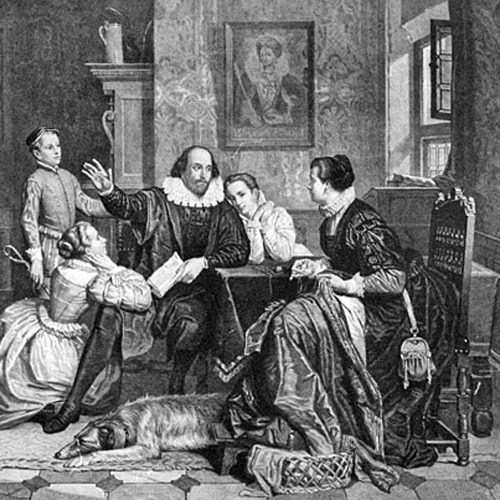by Thomas O’Dwyer

A book subtitled A Novel of the Plague might appear opportunistic at this time. But in Maggie O’Farrell’s new and much-praised Hamnet, the only opportunity the author seems to be taking advantage of is our ignorance of the life of William Shakespeare. “Miraculous,” The Guardian wrote, “a beautiful imagination of the short life of Shakespeare’s son, Hamnet, and the untold story of his wife, Agnes Hathaway, which builds into a profound exploration of the healing power of creativity.”
Around the world, library shelves creak under the weight of books, some centuries old and in a babel of languages, about England’s undisputed greatest genius. Analyses of his works aside, all that is written about the life and character of the man is speculation, fabulation or infatuation. A pencil and a postcard suffice to jot down the facts we know. Sifting through his plays and sonnets for clues to his life, beliefs and relationships will not do – though it has been done ad nauseam. The names Hamlet and Hamnet appear to have been interchangeable in documents dating from his time. Therefore, it must follow that William named his great play in memory of his only son Hamnet who died at the age of 11. That is one great burden of proof to place on the swapping of two letters, n and l, in one word.
A striking feature of O’Farrell’s novel is that the name Shakespeare appears nowhere, although it is entirely about the family of the playwright, a shadowy figure who slips in and out of his native Stratford-Upon-Avon.
“Everyone thought the glover’s son would amount to nothing, what a wastrel he had always seemed, and now look at him – a man of consequence in London, it is said, and there he goes, with his richly embroidered sleeves and shining leather boots.”
It is tempting to respond with Petruchio explaining in The Taming of the Shrew why he moved to Padua:
Such wind as scatters young men through the world,
To seek their fortunes farther than at home
Where small experience grows.
But there we go again, drawing conclusions from random quotes from the man’s theatre world. This novel is not the young man’s viewpoint or biography. Its theme is of women in the roles their times dictated for them. It chronicles their emotions and desires, their sorrows, their work and their ferocious protection of their children in a world where “the man” is absent, but nonetheless makes sure to provide money and a comfortable home for his family, as Shakespeare did. Read more »
